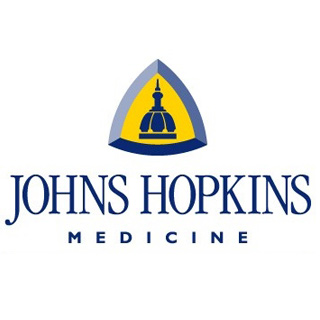
The novel findings were noted to have been built on earlier studies. These previous studies demonstrated that deficiencies in vitamin D and low levels of estrogen appear to be independent risk factors for hardened and narrowed arteries and weakened bones. Estrogen is known to be found naturally in contradictory amounts in men and women. Vitamin D seems to be an essential part in maintaining the body healthy. Moreover, it could possibly be achieved from fortified foods, such as milk and cereals, and via exposure to sunlight.
“All three steroid hormones – vitamin D, estrogen and testosterone – are produced from cholesterol, whose blood levels are known to influence arterial and bone health. Our study gives us a much better understanding of how the three work in concert to affect cardiovascular and bone health,†says lead author of the study, Erin Michos, M.D., M.H.S. cardiologist and an assistant professor at the Johns Hopkins University School of Medicine and its Heart and Vascular Institute.
The Hopkins team’s latest data was believed to have been provided by examining blood samples from a subset of 1010 men participating in a study on cancer. That study supposedly was part of a larger, enduring national health survey involving both men and women.
Moreover, it was believed to have been designed to evaluate the risk of diseases between those with the lowest blood levels of vitamin D to those with higher amounts. An unhealthy deficiency seems to be considered with blood levels of 20 nanograms per milliliter or lower.
During the study, the men were noted to have their hormone levels measured for both chemical forms of testosterone and estrogen found in blood. Also, it appears to have been measured when each is either unattached or circulating freely, and when each is attached to a separate protein, known as sex hormone binding globulin (SHBG).
Early findings appear to have revealed no link between vitamin D deficiency and depressed blood levels of either hormone. Further, the authors seem to have found a harmful relationship between depressed testosterone levels and rates of heart disease, stroke, and high blood pressure, as well as osteopenia in men. However, they found that the hormones may perhaps have been independent of deficiencies in vitamin D.
Later, they compared ratios of estrogen to SHBG levels. The findings revealed that rates of both diseases, especially osteopenia seem to have been higher when both estrogen and vitamin D levels were depressed. Osteopenia is known to be the early stage of osteoporosis.
In addition, for every single unit decrease in ratios of estrogen to SHBG both in nanomoles per liter, men low in vitamin D were observed to have shown nearly 89 percent increase in osteopenia. However, men with sufficient vitamin D levels seem to have a less troublesome 64 percent increase.
With the same measure of estrogen levels, men low in vitamin D seem to be at heightened risk of heart diseases at about 12 percent in contrast to men with sufficient levels of the vitamin, at 1 percent. The study authors were believed to have said that the numbers appear to be still statistically noteworthy.
Michos further said that, “These results reinforce the message of how important proper quantities of vitamin D are to good bone health, and that a man’s risk of developing osteoporosis and heart disease is heavily weighted on the complex and combined interaction of how any such vitamin deficits interact with both their sex hormones, in particular, estrogen.â€
“Our results confirm a long-suspected link and suggest that vitamin D supplements, which are already prescribed to treat osteoporosis, may also be useful in preventing heart disease,†she elucidates.
The study authors recommend that men and women may be able to boost their vitamin D levels by consuming diets rich in fatty fish, such as cod, sardines and mackerel, eating fortified dairy products and taking vitamin supplements. Also, during warm weather, one should expose the skin to the sun’s vitamin-D producing ultraviolet light for a short time.
Moreover, clinical trials appear to be under way to determine whether or not vitamin D supplements can prevent incidents of or deaths from heart attack, stroke and other signs of cardiovascular disease.
The U.S. Institute of Medicine suggests that sufficient daily intake of vitamin D seems to be between 200 and 400 international units. However, Michos feels this is inadequate to achieve optimal nutrient blood levels i.e. above 30 nanograms per milliliter.
Earlier findings from the same nationwide survey showed that approximately 41 percent of men and 53 percent of women may have been precisely deficient in the nutrient, with vitamin D levels below 28 nanograms per milliliter. She along with her team subsequently seem to plan to analyze blood samples from women in order to see if the same results from men hold true.
The findings of the study have been presented at the American Heart Association’s (AHA) annual Scientific Sessions in Orlando.
